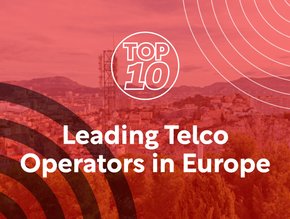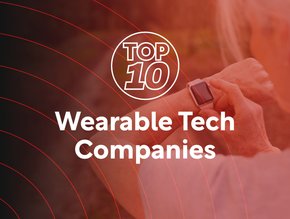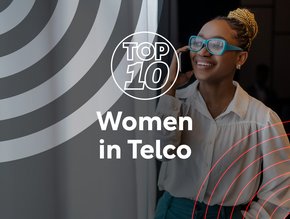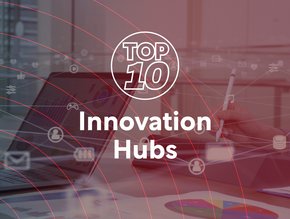Top 10 pioneering leaders in the AI industry
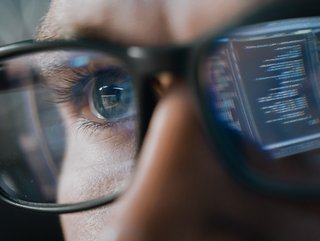
It is no secret that the AI industry is experiencing a large boom. The world of AI has had a very significant impact on the way that data is handled and used. It can not only automate report generation and simplify data for human understanding, but streamline data processes and use machine learning algorithms for predicting outcomes and revealing trends.
Mobile Magazine considers some of those within the AI industry who are not only pioneers in their field, but continue to shape and pave the way for its future development.
10: Alan Turing, ‘Father of AI,’ Turing Test
Turing is widely known, especially in the UK, as the father of theoretical computer science and artificial intelligence. With an extensive legacy, including an appearance on the current Bank of England £50 note, he remains one of the most influential people of the twentieth century due to his understanding of the early computer.
Alan Turing first considered the question, "Can machines think?" in his seminal paper, Computing Machinery and Intelligence, published in 1950. From these original theories, AI has rapidly expanded and developed in line with computing. The Turing Test, originally called the imitation game by Turing, is a test of a machine’s ability to exhibit intelligence equivalent to that of a human.
9: Allie Miller, Deep Tech Angel Advisor and Investor
Allie Miller advises Fortune 500 companies, enterprises, non-profits, and start-ups on artificial intelligence and machine learning. Previously, she has worked for large corporations like AWS and IBM on AI systems, including conversational AI, operations, and multi-modal computing.
Prior to that, she was the youngest-ever woman to build an artificial intelligence product at IBM, helping to accelerate product development across computer vision, conversation, data, and regulation for thousands of companies. Miller now speaks globally to advise on AI policy and how to successfully build AI.
8: Dr. Jonathan Stokes, Assistant Professor, McMaster University
Dr. Jonathan Stokes is an assistant professor at McMaster University and has recently been recognised in particular for being part of the study that used AI to discover the superbug-killing antibiotic, abaucin. His lab works to discover next-generation antibiotics with expanded capabilities, envisioning a future where drug discovery is automated, efficient, and cost effective for healthcare systems and patients.
The study, published in Nature Chemical Biology, highlights the use of machine learning in antibiotic discovery and showcases a positive lead with targeted activity against a challenging “Gram-negative pathogen.”
7: Dr. Fei-Fei Li, Inventor, ImageNet
Dr. Li founded ImageNet, an image database helping researchers find data to help train object recognition models. Beginning work on the idea for ImageNet in 2006, at a time when most AI research focused on models and algorithms, Li wanted to expand and improve the data available to train AI algorithms.
She is also a professor in Computer Science at Stanford University, where she and her students research machine learning, deep learning, computer vision, robotics, computational neuroscience, cognitive neuroscience, and AI healthcare. Currently, she sits on the board of AI4ALL, which is a non-profit organisation that opens doors for greater diversity within the AI industry.
6: Timnit Gebru, Founder and Director, DAIR
Timnit Gebru is the founder and executive director of the Distributed Artificial Intelligence Research Institute (DAIR). The organisation’s ethos is that the harms of AI are preventable and when its production and deployment includes diverse perspectives, free from bias, it can be beneficial for all.
Gebru also co-founded Black in AI, a non-profit that works to increase the presence, inclusion, visibility and health of Black people in the field of AI. In 2018, she spoke with MIT Technology Review about how “bias gets into AI systems” and how diversity can help to counteract it.
5: Dr. Darío Gil, Senior Vice President and Director, IBM Research
Darío Gil is responsible for IBM Research, one of the world’s largest and most influential corporate research labs. He directs innovation strategies in hybrid cloud, AI, semiconductors, quantum computing, and exploratory science. In addition, he also leads the technical community of IBM and is responsible for the company’s intellectual property strategy and business.
In May 2023, the company introduced the technology behind watsonx.ai, IBM’s AI and data platform. It will offer a suite of foundation models aimed at delivering enterprise value, and have been incorporated into a range of IBM products that will be available to IBM customers later in the year.
4: Andrew Ng, Founder and CEO, Landing AI
Dr. Andrew Ng is a globally recognized leader in AI. He is Founder of DeepLearning.AI, Founder & CEO of Landing AI, General Partner at AI Fund, Chairman and Co-Founder of Coursera.
Landing AI is a software platform where companies with limited data sets can realise the business value of AI and move AI projects forward in production. Ng spoke on this evolution of data and AI, stating: “Instead of focusing on the code, companies should focus on developing systematic engineering practices for improving data in ways that are reliable, efficient, and systematic.
“In other words, companies need to move from a model-centric approach to a data-centric approach.”
3: Geoffrey Hinton, Godfather of AI, Google
So-dubbed the ‘Godfather of AI,’ Geoffrey Hinton was one of the early pioneers of AI. He was most noted for his work on artificial neural networks, and since worked between Google Brain, and the University of Toronto.
In May 2023, Hinton announced that he was stepping down from his role at Google, citing warnings about the growth of machine learning. He expressed concerns over the rapid growth of AI, believing that the so-called ‘AI takeover’ is happening way sooner than he thought.
2: Sam Altman, CEO, OpenAI
With OpenAI currently at the centre of a rapid AI explosion, CEO Sam Altman is on a mission to ensure that the company conducts AI research to promote and develop a friendly AI. He is an American entrepreneur, investor, and programmer, having previously co-founded Loopt, been the president of Y Combinator, and a previous CEO of Reddit.
ChatGPT in particular is a development where intelligence hopes to benefit all of humanity. Sam Altman himself has admitted, in the below video, that he is nervous about the very rapid advancement of AI. He continues to address the benefits to using products like ChatGPT as a tool to aid humanity.
1: Demis Hassabis, CEO, Google DeepMind
So-called the ‘Grandmaster of AI,’ Demis Hassabis is a British AI researcher and entrepreneur. He rose to prominence through his company, of which he is co-founder and CEO, Google DeepMind (formerly known as DeepMind). In May 2023, the company merged with the Google Brain units with the intention of achieving more capable and responsible AI systems. He is now an advisor in AI for the UK government.
Hassabis has always been open to the positive implications that AI could have for humanity, namely in healthcare. Google DeepMind’s recent project, AlphaFold, was confirmed to be able to predict 3D protein structures, which has ultimately been a ground-breaking discovery for the field of biology. He maintains the belief that AI will continue to offer enormous benefits to the world of science, but risks and ethical issues still remain.

